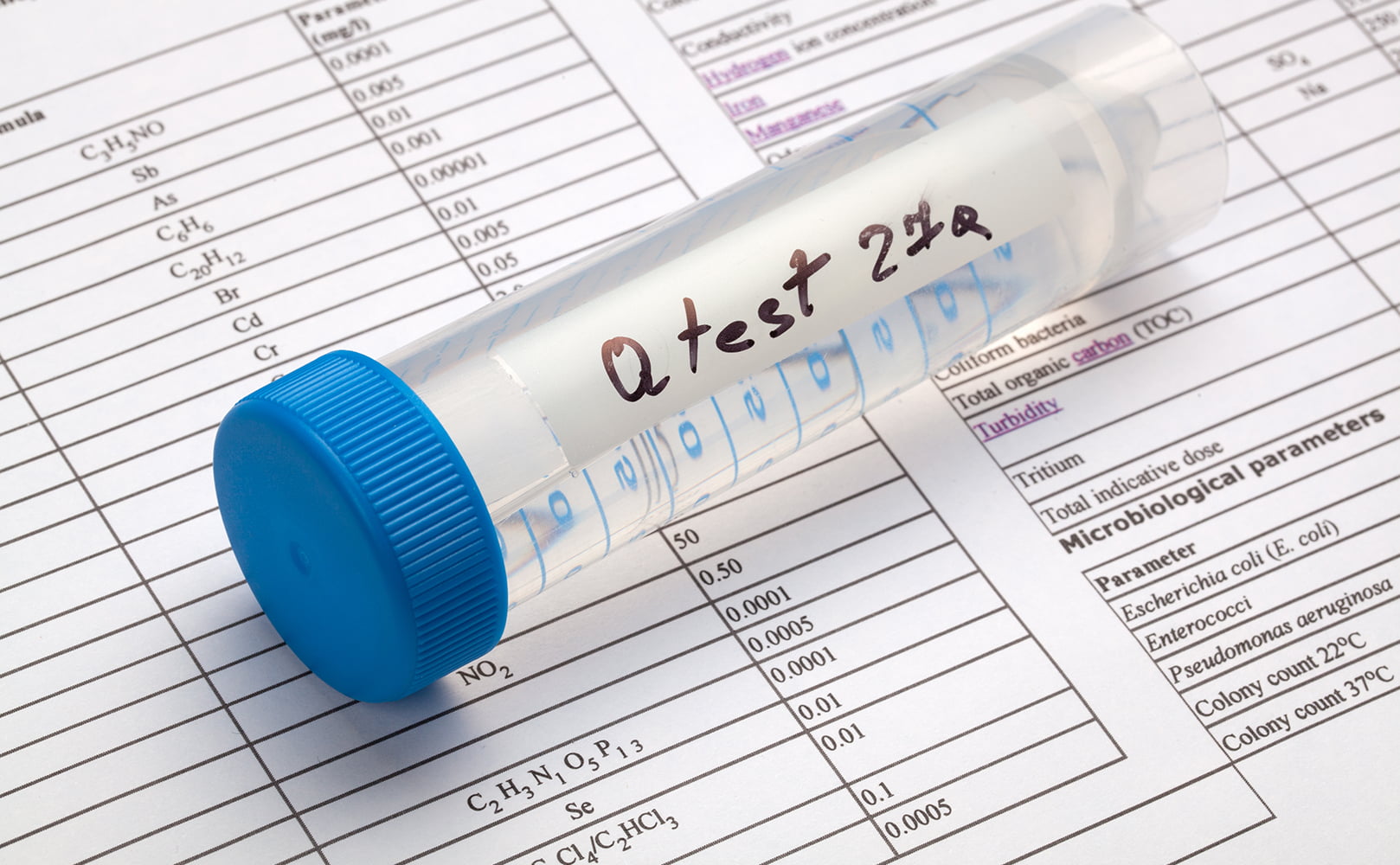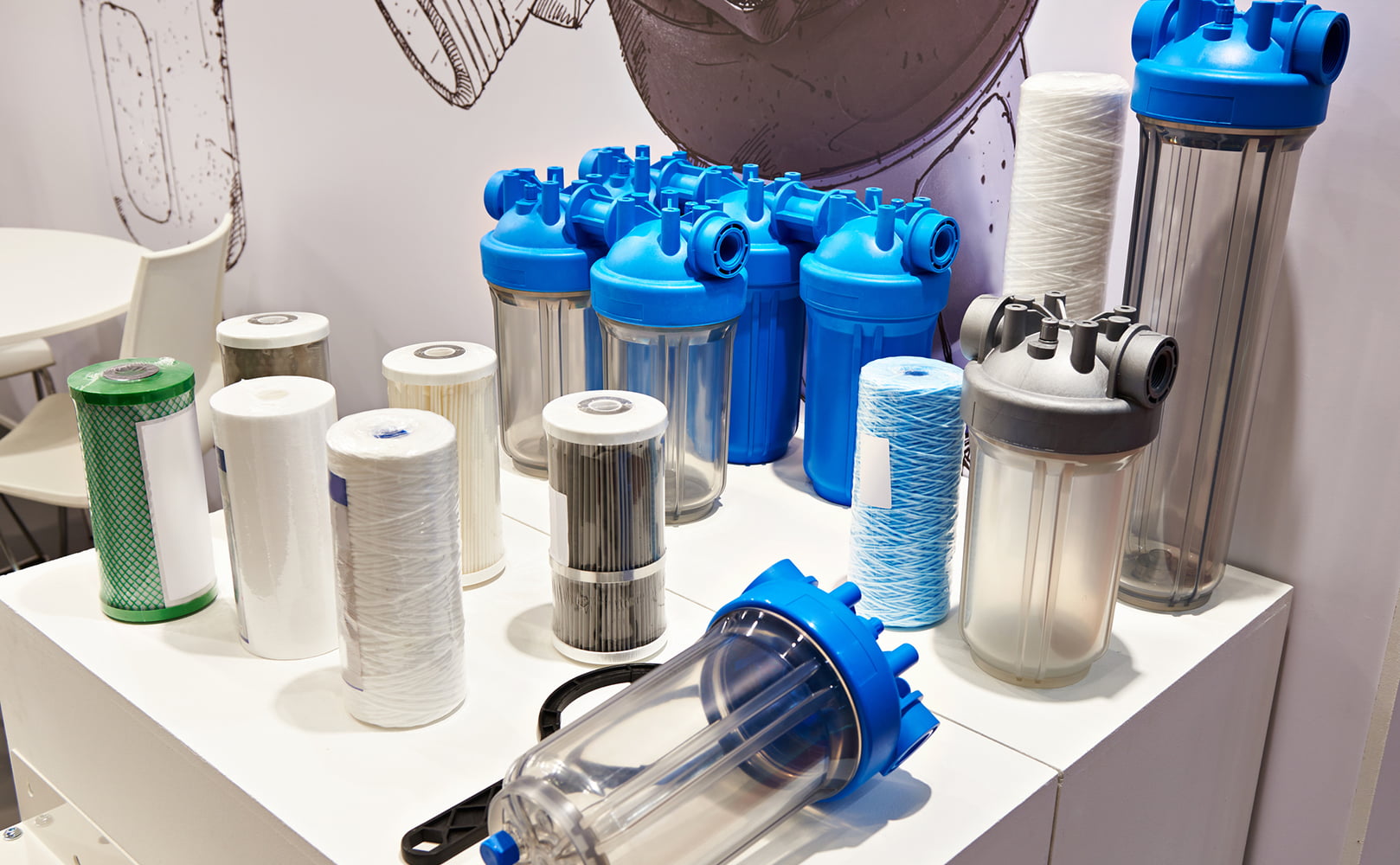Whole House Water Filter Buying Guide | From A to Z
Written by: Gene Fitzgerald // Last Updated: May 11, 2023
This page may contain affiliate links. If you buy a product or service through such a link we earn a commission at no extra cost to you. Learn more.
So you’ve decided to invest in a whole house water filter. Congratulations! This is a great way to ensure that your family has access to clean, safe water at all times.
But with many available systems on the market, it can be tough to know where to start.
Let this whole house water filer buying guide help you select the ideal unit for your needs.
Key Takeaways
- Before buying a whole house water filter, have your water tested for contaminants and impurities. This will serve as your guide for what type of system you need.
- Consider your required flow rate, which depends on the size of your household and how much water you consume at peak hours.
- Cost, required maintenance, space needs, and product warranties are other factors to consider.
What Is a Whole House Water Filter?
A whole house water filter is a system that is installed on your main water line to filter out contaminants from all the water in your home. This means that every time you turn on a faucet, shower, or run the dishwasher, you can be confident that the water coming out is free of harmful chemicals and particles.
Whole House Water Filter Buying Guide – What to Look for
Before you go out to buy a whole house water filter, it’s ideal to do some proper research first. Below are some factors you’ll want to keep in mind during your search. Check out our guide for the best whole house water filters in 2024, too!
Which Whole House Water Filter Do You Need? Analyze Your Water Supply!
The first thing you need to do is analyze your water supply. Depending on the quality of your water, you may need a different type or model of whole house filter.
For example, if your water comes from a private well, there are likely higher levels of minerals, metals, and other contaminants present. In this case, you’ll want to look for a system that can remove these particles effectively.
On the other hand, if your municipality supplies your home with water, it’s likely that the water is already treated to some degree. In this case, you may not need a system as heavy-duty as one that would be required for a private well.
You can have your water tested to see which contaminants are present and at what levels. This information will be very helpful as you narrow down your choices for a whole house water filter.
Filter Types
There are different types of whole house water filters available on the market, each with its own set of benefits. Choosing the best one for you depends on the contaminants you have to treat.
If you have well water, you may be dealing with iron, manganese, and sediment. In this case, you’ll want a filter that can specifically target those contaminants.
If you’re on municipal water, your main concerns will likely be chlorine and other chemicals, and maybe even heavy metals such as lead. Some whole house filters can address all of these problems.
Flow Rates
One of the most important things to consider when buying a whole house water filter is the flow rate. This is essentially how much water can be filtered per minute and will largely depend on the size of your household.
For smaller homes, a lower flow rate may suffice; but if you have a larger family or entertain often, you’ll want to make sure your system can handle it.
As a general rule of thumb, whole house water filters with a flow rate of 10 gallons per minute (gpm) or higher are ideal. Any less might not be fitting for a large household.
Microns
While different contaminants are measured in different ways, microns provide a good way to compare the overall particle filtration ability of whole house water filters. To put it simply, the smaller the micron rating is, the more effective the filter will be at removing floating impurities from your water.
For example, a system with a micron rating of 5 will remove contaminants that are 5 microns or larger while one with a rating of 1 will remove anything that’s 1 micron or larger.
Depending on what you’re dealing with, you’ll want a system that can filter down to 0.5 microns. However, lower micron ratings also mean lower output water flow which is definitely something you need to keep in mind.
Filter Life
Another important factor to consider is the filter life. This will tell you how long each individual filter can be used before it needs to be replaced. Most cartridge-based systems will come with replacement filters that can be bought separately but it’s still something you’ll want to keep in mind when making your decision.
In general, it’s best to choose a system with filters that last at least 6 months. This way, you won’t have to replace them too often and can save money in the long run.
Cost
Of course, your budget is something to think about before you decide on a system. While you may be tempted to go for the cheapest option, it’s important to remember that you get what you pay for. In many cases, it’s worth investing in a higher-quality unit, as it will likely last longer and provide better filtration.
Consider the shipping and installation costs, as well as the price of replacement filters when making your decision. Some manufacturers offer shipping and installation services for free!
Space Requirements
Another thing you’ll want to take into account is the amount of space your whole house water filter will require. Some systems can be quite large and bulky, so make sure you have enough room to accommodate your choice of product.
Manufacturer Warranty
Another important factor to consider is the manufacturer’s warranty. This will protect you in case anything goes wrong with your system and will give you some peace of mind knowing that you’re covered. Most whole house water filters come with a 1-year warranty but some go as high as 5 years or lifetime.
Additional Tips
1. Make sure your whole house water filter is NSF certified.
NSF International is a third-party organization that tests and certifies products to ensure they meet certain quality standards. When it comes to water filters, you’ll want to make sure the system you’re considering is NSF certified for both safety and performance.
2. Consider investing in water softener, too.
If you live in an area with hard water, it’s a good idea to invest in water softeners in addition to your whole house water filter. Hard water can cause all sorts of problems like clogged pipes and fixtures, as well as dry skin and hair. Water softeners work by removing the minerals that cause hardness, making your water safer and more pleasant to use.
If you have any questions about our whole house water filter buying guide please don’t hesitate to leave a comment below!
Information provided on BOS is for educational purposes only. The products and services we review may not be right for your individual circumstances.
We adhere to strict editorial guidelines. Rest assured, the opinions expressed have not been provided, reviewed, or otherwise endorsed by our partners – they are unbiased, independent, and the author’s alone. Our licensed experts fact-check all content for accuracy. It is accurate as of the date posted and to the best of our knowledge.



